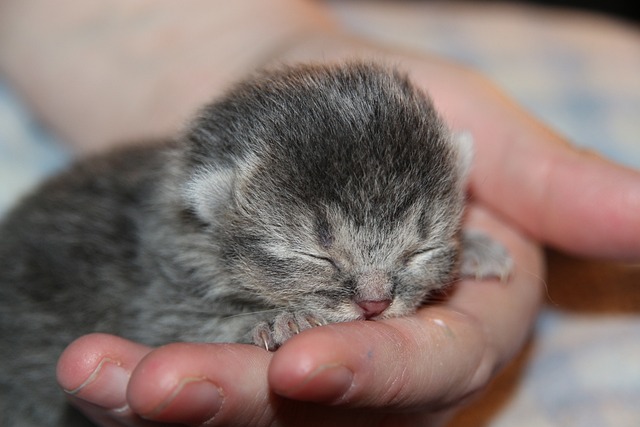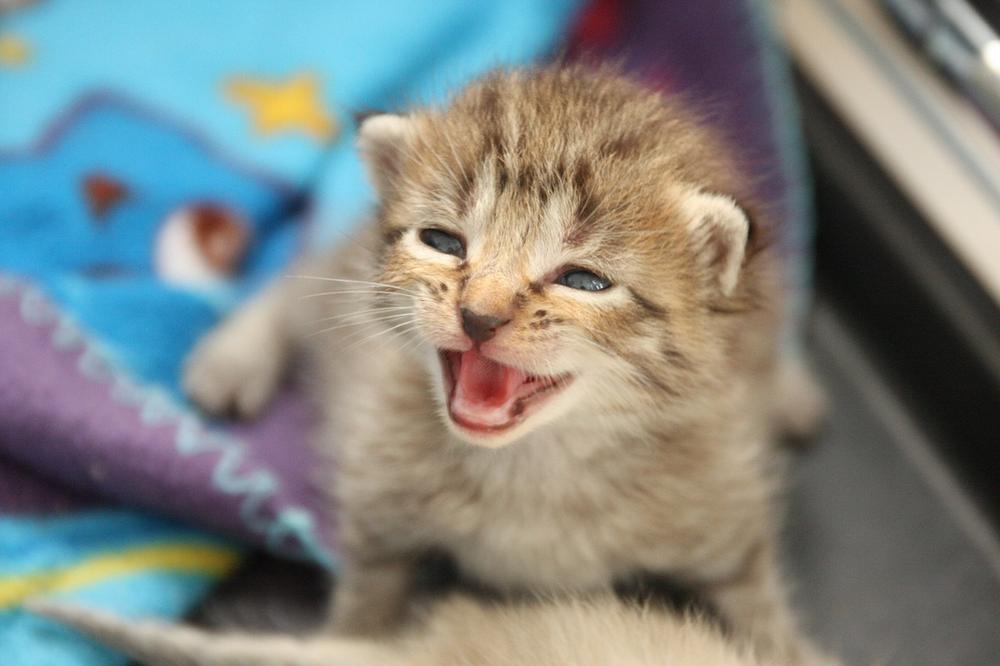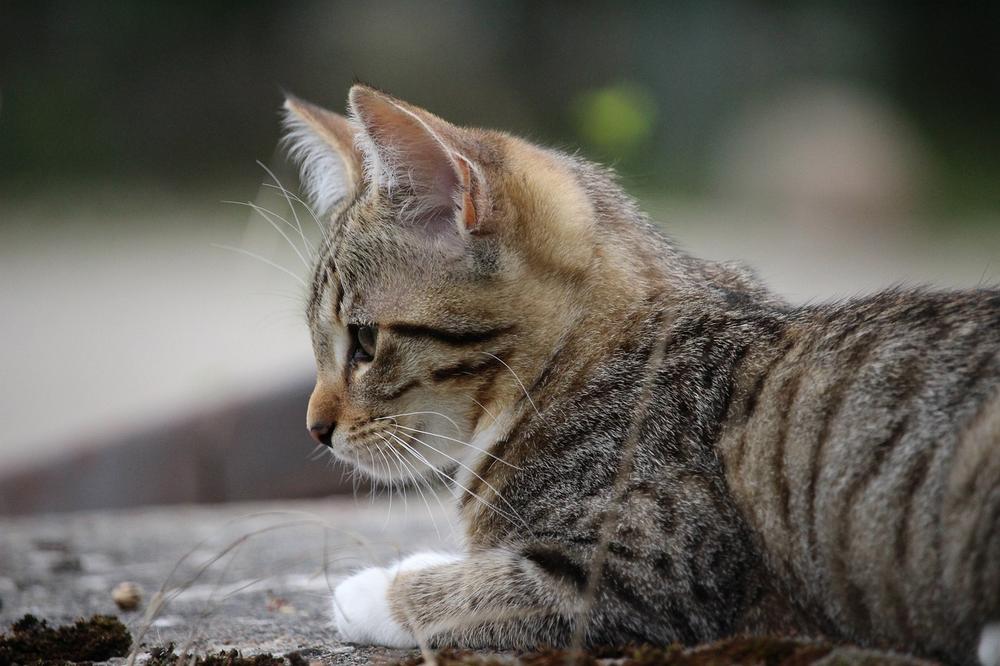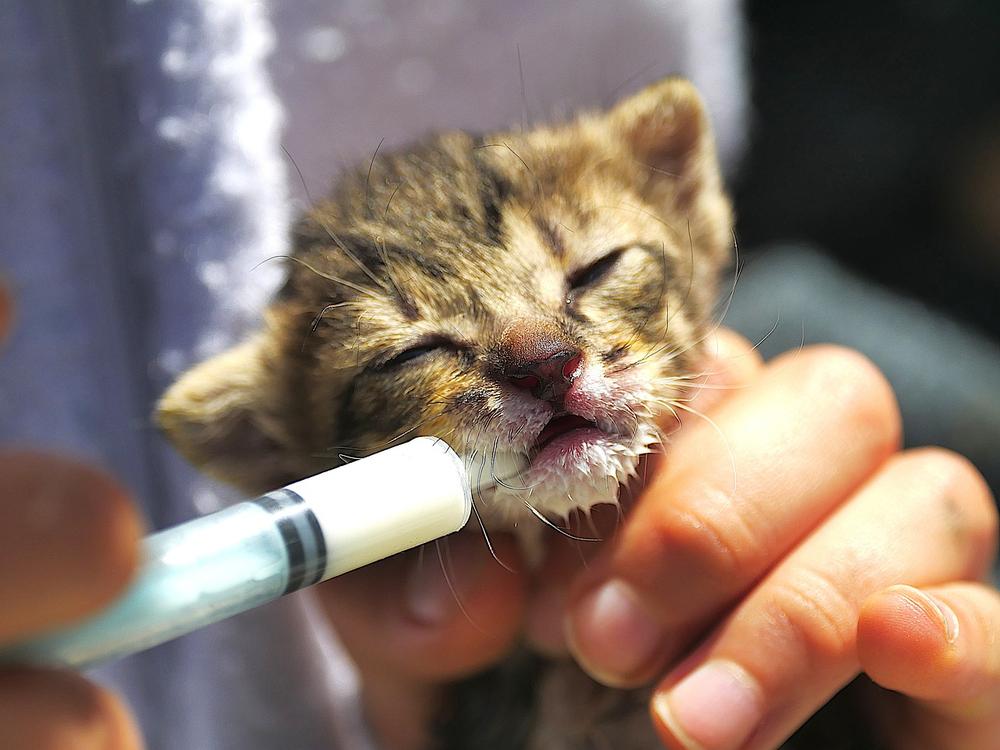Newborn Kitten Sneezing a Lot? Read This

Do you hear that?
The tiny sneezes echoing through your home 😺.
The constant symphony of a newborn kitten on a sneezing spree.
It's like a hurricane of adorable destruction, stirring up worries and questions in your mind.
Are they alright?
Is this normal?
Should you be concerned?
Take a deep breath, because I'm here to guide you through the labyrinth of newborn kitten sneezing.
Stick around and let's unravel this mystery together.
Causes of Sneezing in Newborn Kittens
Newborn kittens sneeze for various reasons – here's what you need to know:
- Infections: The little ones can develop viral or bacterial infections, like upper respiratory infections and feline calicivirus. So, keep an eye out for frequent sneezing, a runny nose, and watery eyes – these could be signs of an infection that requires the vet's help.
- Allergies: Yep, just like you, kittens can have allergies too. Sneezing is normal if they encounter allergens or irritants, but if it gets excessive, it might indicate a virus-caused respiratory disease.
- Foreign objects: These tiny explorers are always getting into mischief. Sometimes, they may get something stuck in their noses. If your kitten sneezes a lot and keeps pawing at its nose, there could be a foreign object irritating it. Contact the vet for assistance with removal.
- Environmental triggers: Cold air, smoke, strong smells, or even excitement and movement can make newborn kittens sneeze. These are natural reactions to irritants that cause those sneezing fits.
While some sneezing is normal, if your kitten has persistent or worrying symptoms, it's best to have them checked by a vet to ensure their well-being. 😺

And did you know that allergies can also be a cause of sneezing in newborn kittens?
Yes, just like us humans, these tiny furballs can experience allergic reactions too... In fact, certain common allergens and irritants, such as pollen, dust mites, disinfectants, and even stress, can make them sneeze.
So, if you suspect allergies might be the culprit behind your kitten's sneezing, further testing and treatment may be necessary for their well-being...
Common Allergens that can Cause Sneezing in Newborn Kittens
Common Allergens that can Cause Sneezing in Newborn Kittens
Let's talk about sneezing kittens, adorable aren't they?
First things first, newborn kittens are incredibly cute, right?
But if your little furball is sneezing, it may mean something is bothering them.
And let me tell you, there are several common things that can make these tiny kitties sneeze.
Environmental factors can cause sneezing too
You know those annoying things like pollen, mold spores, and dust mites?
Well, guess what?

They can also make little kittens sneeze.
Even things like disinfectants, sanitizers, and strong perfumes can tickle their noses!
Allergic reactions and foreign objects...oh my!
Allergies in newborn kittens aren't very common, but they can happen. Stress or sudden exposure to certain substances might trigger allergic reactions, causing sneezing fits.
And oh boy, if a curious kitten sniffs or inhales a foreign object, it can really irritate their delicate nose and make them sneeze!
So if your adorable kitten seems to be sneezing more than usual, take them to a vet for further testing and treatment.
After all, we want our little feline friends to be healthy and happy, without the sneezes! 🐱
But here's the thing...what if I told you there are simple steps you can take to help strengthen your newborn kitten's immune system and prevent respiratory infections and allergies?
Get ready, because in the next section, we'll explore effective strategies that will keep those sneezes at bay!
Understanding the Immune System of Newborn Kittens
When it comes to a newborn kitten's immune system, you hold the power.
Their fragile immune system is still in the works, susceptible to respiratory infections and allergies.
But fear not!
By fashioning a stress-free schedule and a rock-solid routine, you do wonders for their overall health. Minimize stress.
Provide stability.
These two ingredients serve as the secret sauce backing the development of their immune system. Dear friend, you are in control here.
With your careful actions, you can pave the way for a healthy and thriving little feline friend.
By taking care of your newborn kitten's immune system, you are ensuring their overall health and well-being.
But there's more, my friend! If you ever find yourself wondering why your spayed cat has a saggy belly or belly pouch, I have a helpful guide just for you.
Simply click on this link to discover the answer: Why Does My Cat Have a Saggy Belly After Being Spayed.
Trust me, it's worth your while.
When to Seek Veterinary Care for Healthy Newborn Kittens
Keep a close eye on newborn kittens. They can be fragile.
Here's when you should seek veterinary care:
- If your kitten is sneezing persistently and also having trouble breathing or wheezing, it could mean they have an upper respiratory infection or other illness. You should go to the vet right away.
- Look out for sneezing along with symptoms like eye or nasal discharge, frequent or persistent sneezing, distress during sneezing, coughing while sneezing, loss of appetite, decreased activity, or blood/mucus in the nose. When these signs are present, it's necessary to seek veterinary attention.
- The seriousness of the sneezing helps determine if you need veterinary care. While some cases might get better on their own, others will require more treatment.
- Remember that antibiotics won't treat upper respiratory infections. But these infections do need supportive care. So if your kitten has persistent sneezing, coughing, conjunctivitis, or signs of a deeper infection, they need to see a vet.
- Testing for retroviral diseases is crucial because untreated upper respiratory infections can turn into feline asthma.
- Avoid DIY remedies without guidance from a vet. Make sure to consult a professional to get the right treatment.
- Treatment costs vary depending on how severe the condition is. They can range from $100 to over $500. Consider pet insurance as it can help reduce expenses.
- Supportive care, oral antibiotics, and eye ointment can speed up recovery.
Early intervention is vital to prevent mild symptoms from worsening. Your kitten's health comes first, so don't hesitate to seek veterinary care when needed.
But what can you do to prevent the spread of infections and support your newborn kitten's health?
I've got some tips and tricks for you right here!
Preventing the Spread of Infections in Newborn Kittens

Here's some advice to keep those newborn kittens safe and healthy:
- If any of the little ones are sick or infected, make sure to separate them from the healthy ones.
- Take good care of them at home, giving them the support they need.
- Keep their food nice and warm, and make sure they stay cozy too.
- Use a humidifier to add moisture to the air around them.
- Regularly clean their living space to keep it fresh and tidy.
- Dust and fur can trigger allergies, so try to minimize these in their environment.
- Find online communities of cat lovers who can offer you support and advice.
- Stay on top of their vaccinations to keep them protected.
- Be mindful of exposing them to viruses and bacteria as much as possible.
- Keep their surroundings clean by maintaining good hygiene practices.
- Feed them a balanced diet to keep them strong and healthy.
- Pay attention to their behavior for any signs that they might be getting sick.
And here are a few more tips to consider:
- Make sure all your other cats are up to date with their vaccinations too.
- Steer clear of smoke and chemical odors around the kittens.
- Give natural remedies like essential oils or chamomile tea a try.
- Reduce sneezing by using air purifiers in their environment.
- If they do develop upper respiratory infections, don't hesitate to seek help from a veterinarian.
These infections won't spread to humans, but minimizing irritating factors could help improve those kitty sneezes.
Addressing Newborn Kitten Sneezing and Prevention
Key Takeaways:
- Sneezing in newborn kittens can be caused by irritants, excitement, or movement.
- Infections, allergies, sinusitis, rhinitis, asthma, and foreign bodies can also cause sneezing.
- Symptoms that may accompany sneezing include nasal discharge, coughing, sniffling, itching, and pawing at the nose.
- Excessive sneezing accompanied by a runny nose and watery eyes may indicate viral or bacterial infections in newborn kittens.
- Sneezing in response to allergens or irritants is generally not concerning, but in newborn kittens, it may indicate upper respiratory disease caused by a virus.
- Common irritants such as disinfectants, sanitizers, perfumes, dust, pollen, and smoke can make kittens sneeze.
- Allergic reactions, stress, and foreign objects may also contribute to sneezing.
- Creating a stress-free schedule and routine can benefit the overall health and well-being of newborn kittens' immune system.
- Seek veterinary care for newborn kittens if sneezing is accompanied by symptoms like eye or nasal discharge.
- Severity of sneezing can help determine the need for veterinary attention, and treatment may involve tests, medications, or hospitalization.
- Supportive care at home includes warming food, ensuring warmth, using a humidifier, and cleaning the habitat.
- Prevention measures include vaccinations, maintaining a clean environment, providing a balanced diet, monitoring behavior, and avoiding smoke or chemical odors.
- Natural remedies and removing noxious stimuli from the environment may help reduce sneezing in kittens.
And that wraps up today's article.
If you wish to read more of my useful articles, I recommend you check out some of these: Can You Spay a Pregnant Cat, Why Is My Pregnant Cat Losing Hair, Do Cats Drink a Lot of Water Before Giving Birth, Cat Vomiting After Giving Birth, and Can a Nursing Cat Get Pregnant
Talk soon,
-Sarah Davis